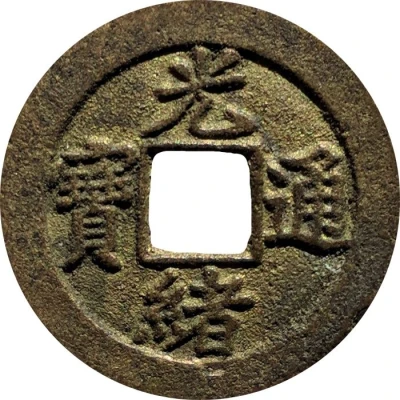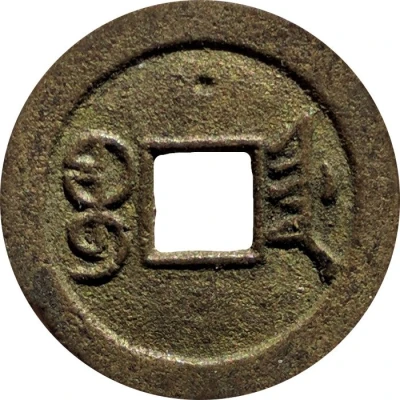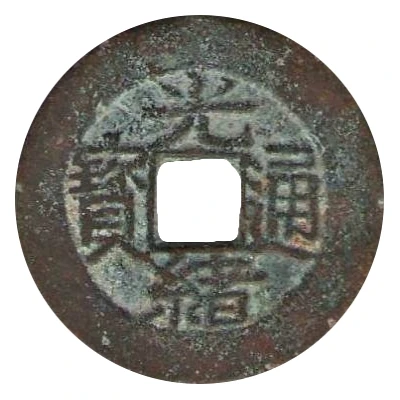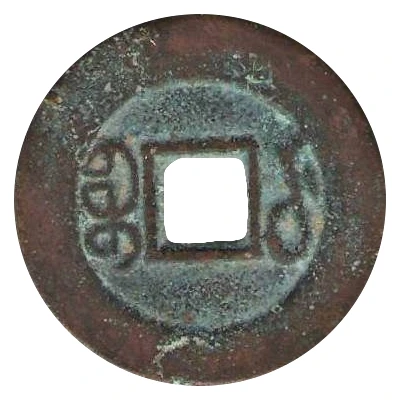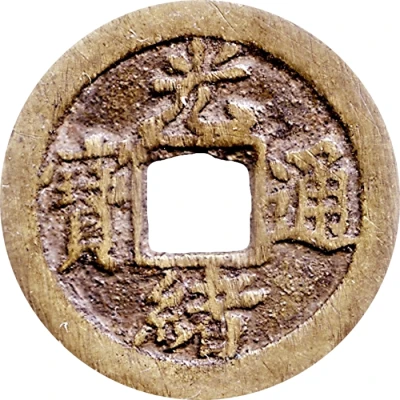
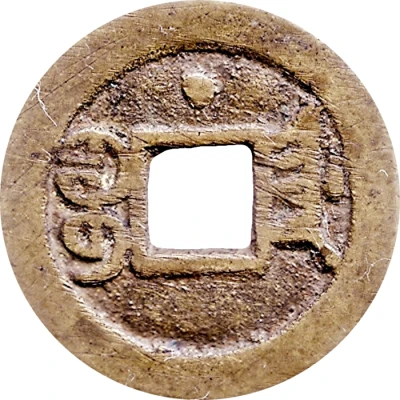

© KennyG
1 Cash - Guangxu Tongbao; Boo-jiyen; with dot ND
| Brass | - | - |
| Issuer | Empire of China |
|---|---|
| Emperor | Qing dynasty › Guangxu (光緒帝) (1875-1908) |
| Type | Standard circulation coin |
| Years | 1886-1900 |
| Value | 1 Cash |
| Currency | Cash (621-1912) |
| Composition | Brass |
| Shape | Round with a square hole |
| Technique | Cast |
| Orientation | Medal alignment ↑↑ |
| Demonetized | Yes |
| Updated | 2024-10-04 |
| Numista | N#45902 |
|---|---|
| Rarity index | 78% |
Reverse
Two Manchu words (read vertically) separated by the hole, all with dot at various locations.
Script: Mongolian / Manchu
Lettering: ᠪᠣᠣ ᠵᡳᠶᡝᠨ
Translation: Boo-jiyen
Edge
Plain
Comment
All the coins in this variant have in common a 7-stroke 貝 radical in 寶 and a nominal weight of 7-8 fen (less than 3 grams).Please create another sheet for variants with a 貝 radical with six strokes and a weight greater than 3 grams, as well as for minted coins.
Interesting fact
One interesting fact about the Standard circulation coin 1 Cash - Guangxu (Tongbao; Boo-jiyen; with dot) ND (1886-1900) from Empire of China made of Brass is that it was designed by a French engraver named Jean-Antoine Bovy, who was commissioned by the Chinese government to create a new coinage system for the country. Bovy's design featured a unique blend of traditional Chinese and Western elements, and the coin was minted in several different variations, including this brass version, which was used for circulation. Despite its relatively low denomination, the coin is highly sought after by collectors today due to its historical significance and rarity.
